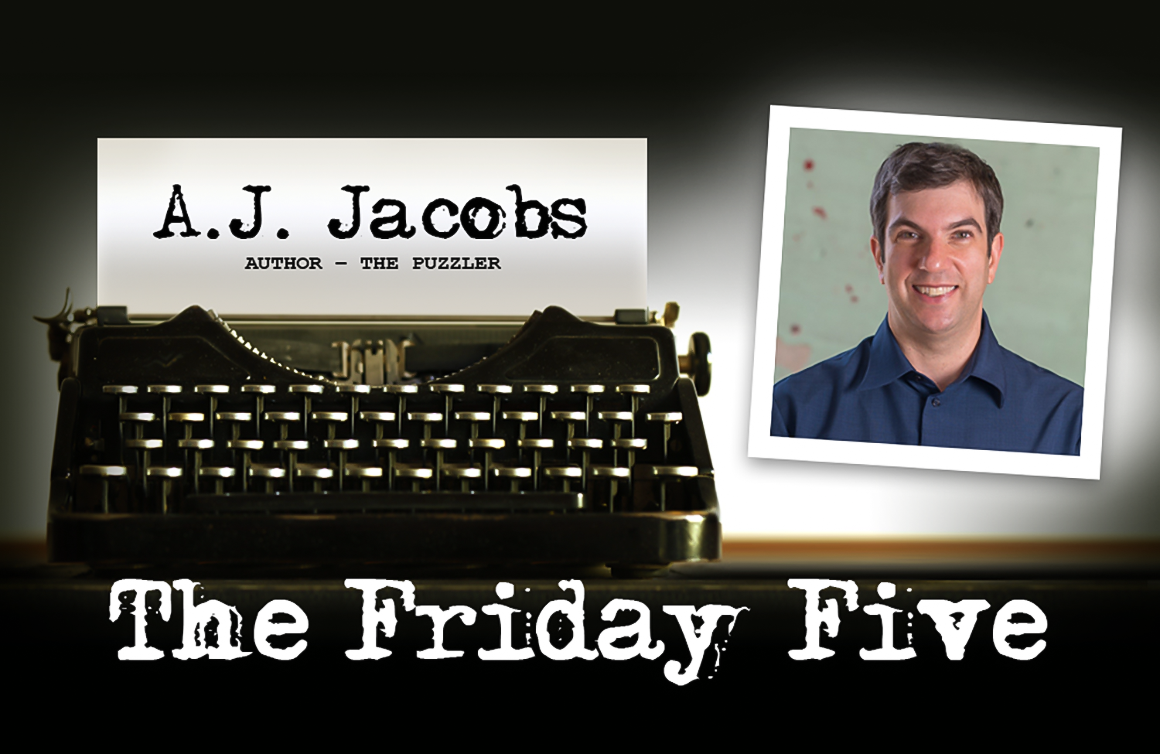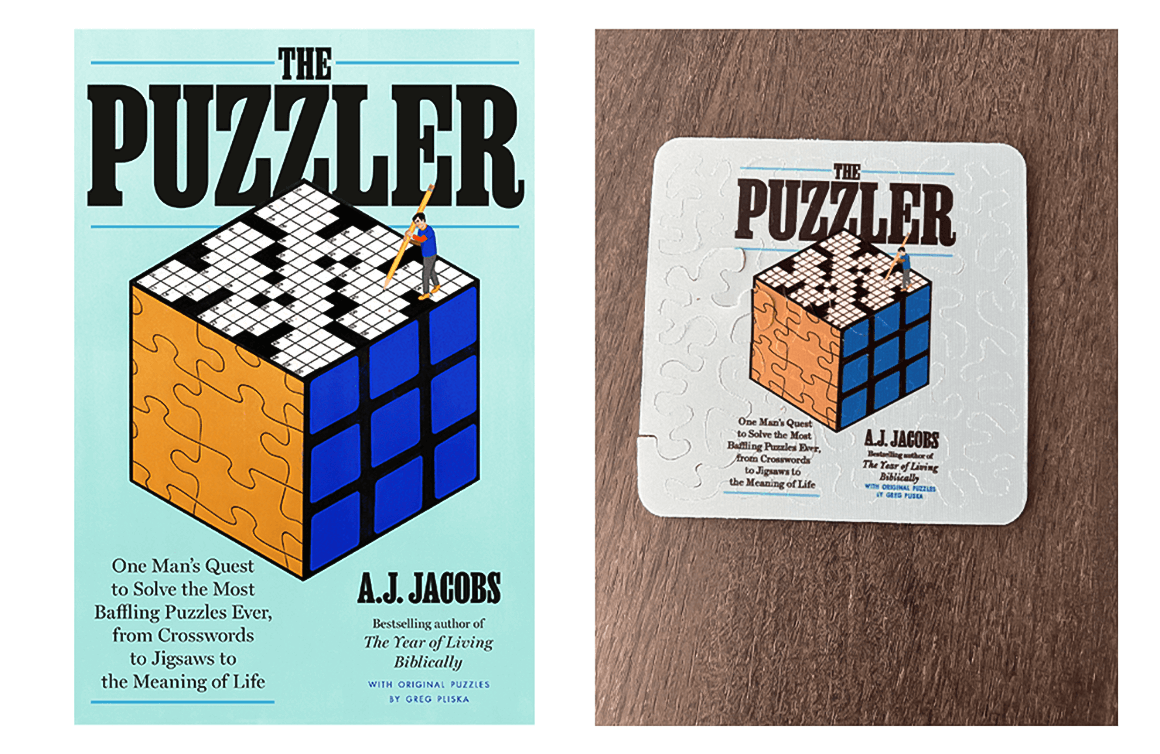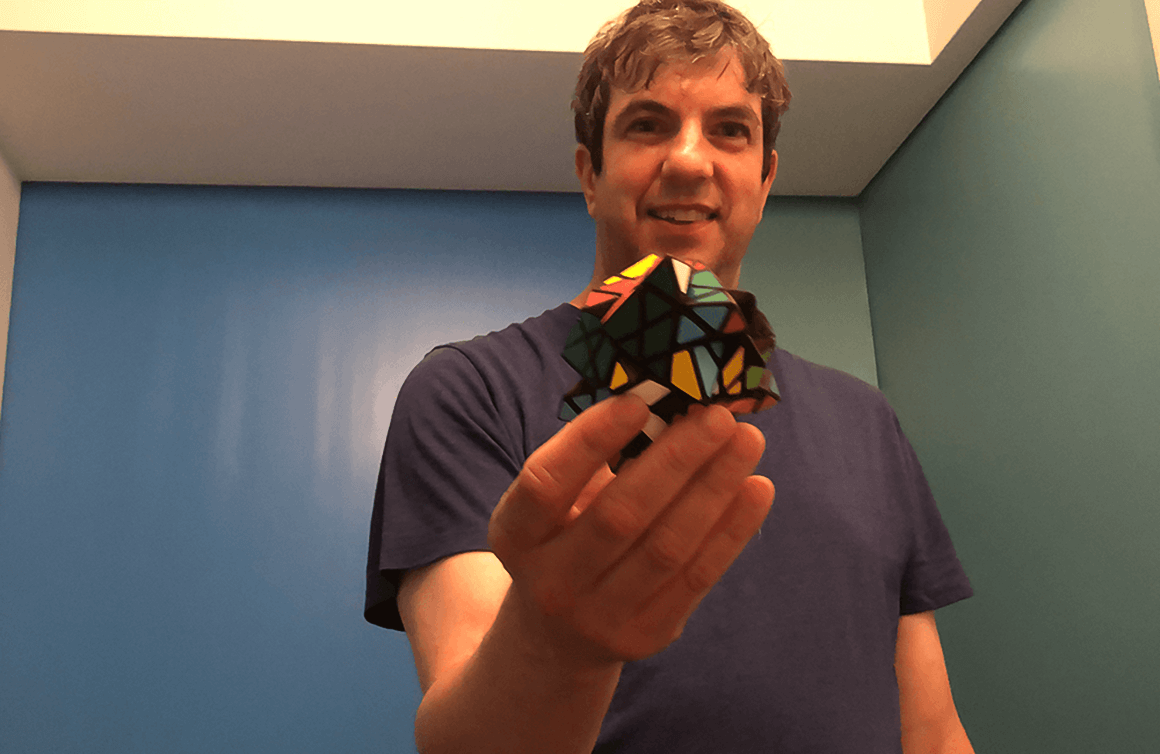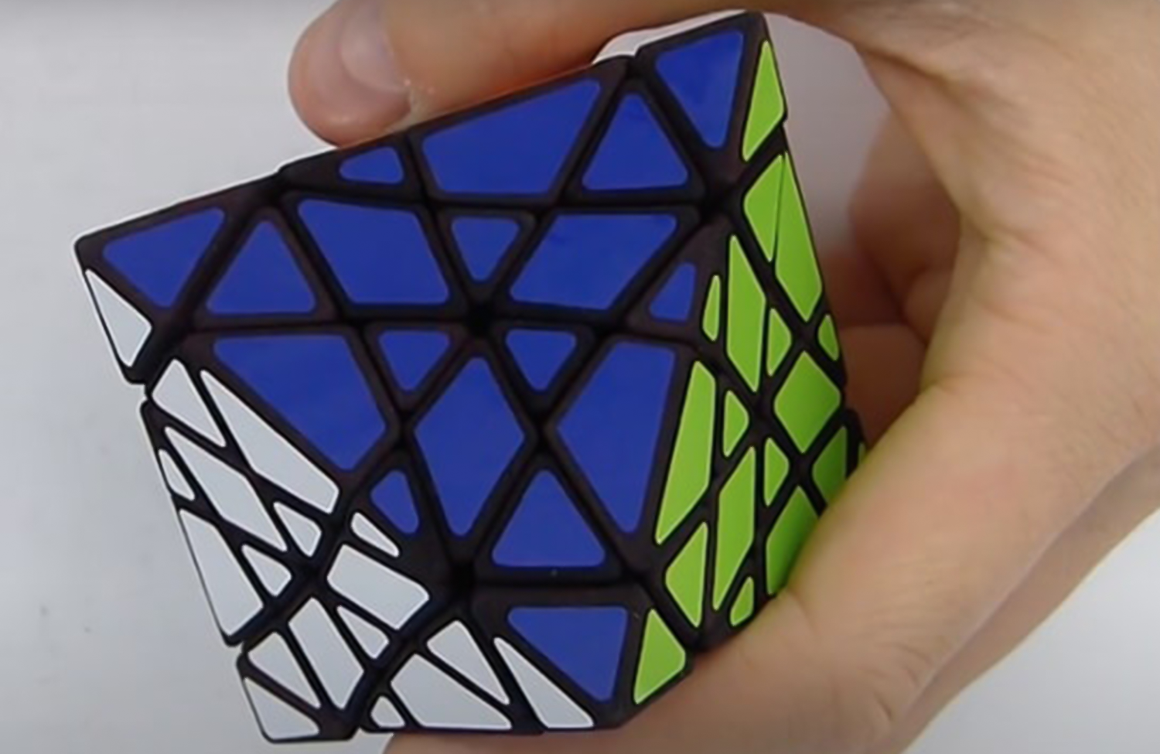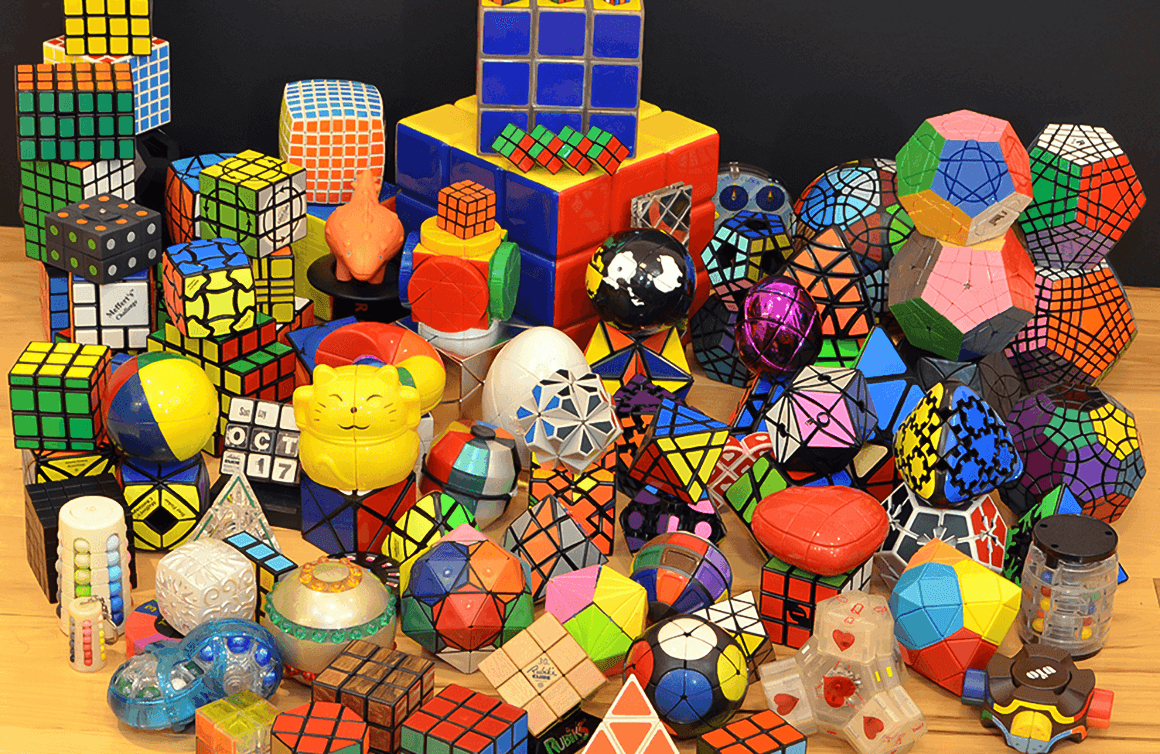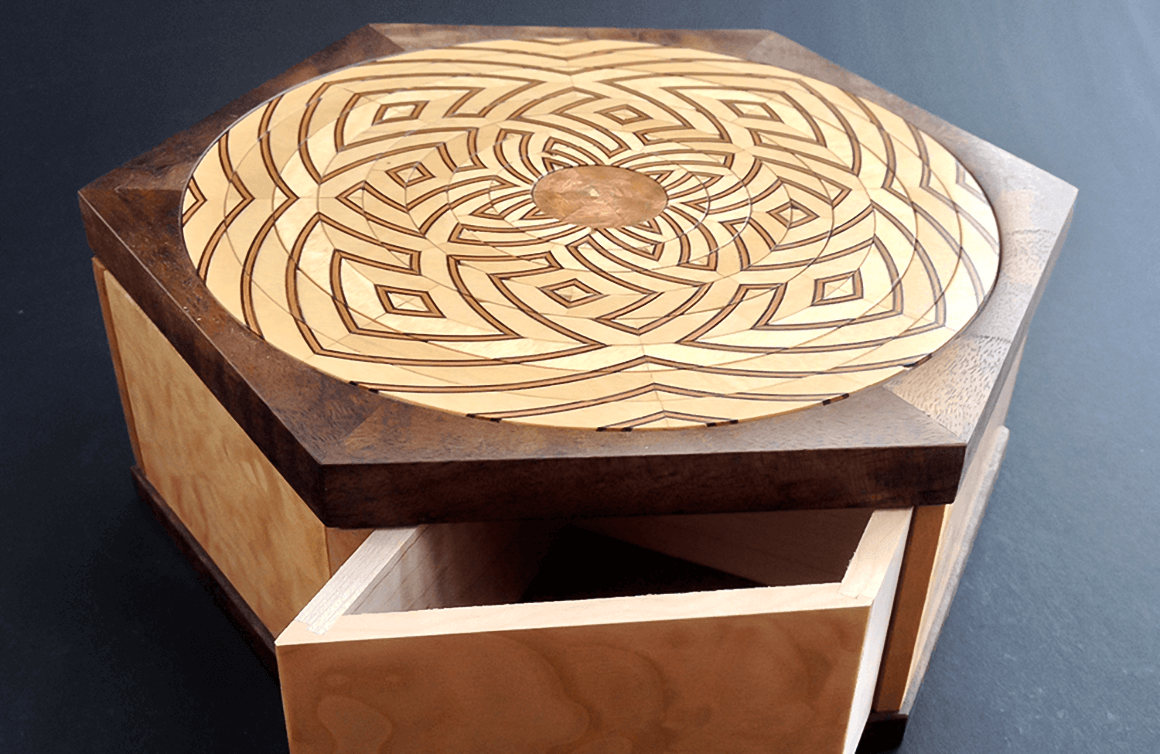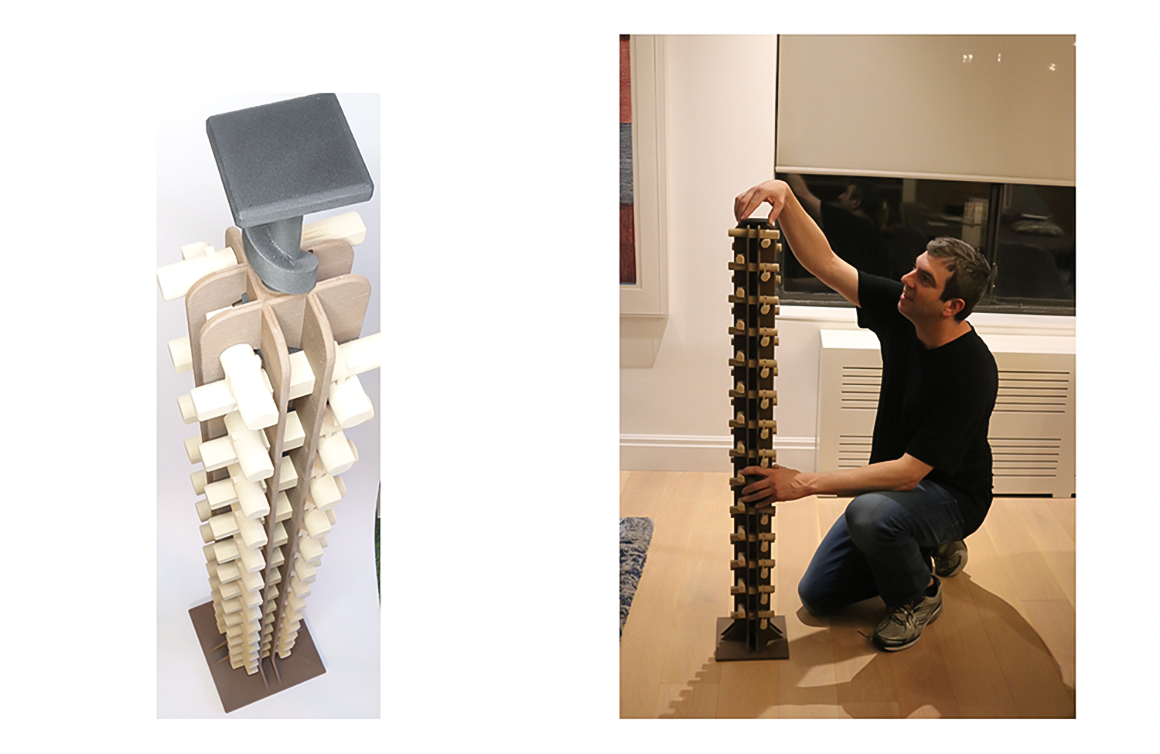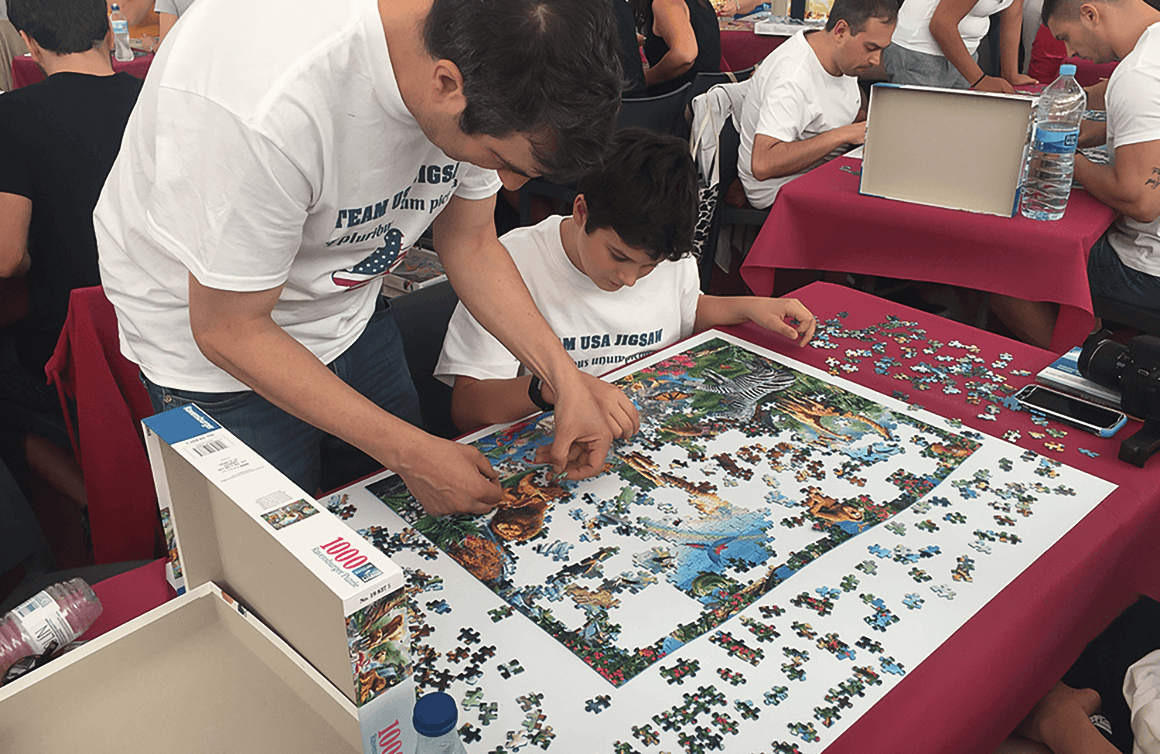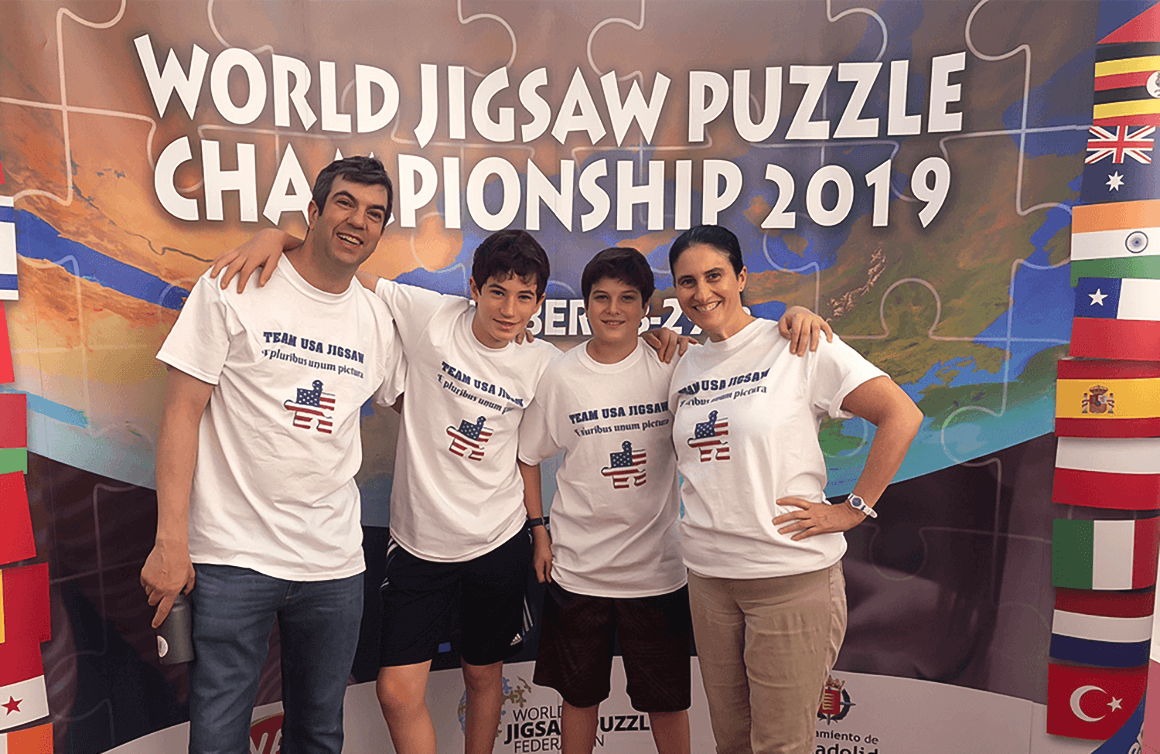The Puzzler took three years to write. How did your approach to writing the book change along the way? Was writing this book a puzzle in its own right?
It was slower than I had anticipated.
There are three reasons it took so long. One, there are so many puzzles in the world and so many genres. It’s not just word puzzles, but also Japanese puzzle boxes, twisty puzzles, wire puzzles, etc. Two, I liked the research too much. I could convince myself that if I spent the whole day playing with puzzles, I was doing research. The third reason is the pandemic. Even though I had a lot of time to do puzzles, I couldn’t go on the adventures I wanted to meet some of these puzzle legends.
Writing the book was a puzzle in so many ways. The puzzle was: how do I meet people during the pandemic? I was able to go to places in between the waves. I was able to visit the CIA headquarters to see Kryptos and I went to Vermont to see the headquarters of Stave Puzzles. I even went to Spain, that was a puzzle. Another puzzle was just how to arrange the chapters — that was like a jigsaw puzzle.
If I looked at the writing of the book as a puzzle, it was kind of empowering and made it more fun, as opposed to looking at it as a chore. I am all for seeing the world as a series of puzzles because I think that is really motivating.

In the book, you share story about your parents and how they stayed connected through puzzles while your dad was stationed in Korea with the Army and your mom was Stateside. What power do puzzles have to keep us connected?
Well, I think it’s huge. And, toys too! They are great at forming communities and creating bonds.
It’s interesting because I think the stereotype — especially a crossword puzzle — is doing it alone. But, I found most people like to do puzzles as a communal activity. If you get stuck, you talk with your friends and it’s very communal. The communities I ran into, like the jigsaw puzzle community, were just lovely. When I went to Spain and met all of the top jigsaw puzzlers, they are all friends with each other.
I saw Josh Wardle speak at the American Crossword Puzzle Tournament. Josh invented Wordle. He shared a lovely story about how his favourite part of Wordle is that it brings people together. He told the story of a gay man he met who was ostracized from his family because they were very conservative. They were able to form a bond and reconnect over Wordle. It was something that they could share. I just love that.
There was an interesting study I wrote about involving liberals and conservatives. One of the best and only ways to get them to cooperate is through something like a puzzle — a crossword puzzle in the case of this study.
A friend of mine calls Wordle the Tom Hanks of puzzles because it seems very nice. It’s not scary, you almost always solve it, and it’s got the simple feedback of green and yellow. So I am a fan as well.

You present the idea that “puzzles can save the world”. Could you elaborate on that?
It’s what I touched on before about how important puzzles are in forming communities. That’s one aspect of it. Another aspect is trying to see life as a series of puzzles, and the world’s problems as puzzles.
It’s motivating to think of the world’s problems in that way. If I hear about the climate crisis, I get stressed out. I want to curl up in the corner in a fetal position. It’s too much. But, if I hear about the climate puzzle … what can we do? how can we solve this? how can we roll up our sleeves and figure out solutions? This approach is much more solution-oriented and optimistic. I do think that we should try to see the world’s problems as puzzles.
The third reason I think puzzles will help save the world is they are great at teaching us how to think. To think first of all outside the box, which is a cliché that came from puzzles. It’s the original nine-dot puzzle where you have to connect nine dots with four straight lines and you have to write outside of the box. They teach us how to think outside of the box, how to think with precision and all sorts of great lessons in thinking. We need to think clearly to solve the world’s problems.

Has The Puzzler contest at thepuzzlerbook.com been won? Has someone taken home the $10,000 prize?
The contest is structured so that you can still enter. The second and final round doesn’t start until June 4, 2022.
There’s a secret code hidden in the introduction of the book. Once you get that secret code, you enter it into the website and that opens access to amazing mind-bending puzzles. One is the twistiest crossword puzzle you’ve ever ever seen.
There are 22 puzzles throughout the month of May. If you solve all 22, then you get to the final round, which begins on June 4. You can play for free and there’s no purchase necessary. For legal reasons, only U.S. residents can win the $10,000.
It’s a blast. The puzzles were created by some of the most brilliant puzzle makers — they are on another level. I didn’t create them. I met these puzzlers at the MIT Mystery Hunt, which is like the Ironman Triathlon of puzzles.
The contest was inspired by one of my favourite books growing up, called Masquerade. It is a 1979 book by a British artist named Kit Williams. The book included wonderful illustrations of rabbits in tuxedos — they were gorgeous and weird. The book contained hints to finding a real buried treasure somewhere in England. It was a little sculpture of a golden rabbit. People went nuts trying to find the golden rabbit — it caused a frenzy. People were digging up yards and gardens and threatening the artists to give them hints but it was wonderful at the same time — except for the threats and trespassing. I loved the idea. I thought, if I’m gonna write a book about puzzles, why not have this secret puzzle embedded in it?! I didn’t want to cause people to dig up lawns all over the U.S., so mine is not buried. It is just the $10,000 cash. No trespassing required.

What drives you to immerse yourself in a series of vastly different life experiences?
It’s funny, later this afternoon I’m talking to a friend of mine, Catherine Price, who wrote a book called The Power of Fun. I think, foremost, I have fun immersing myself in these fascinating areas.
I think that’s why your website exists — fun is very important. Trying to ensure others have fun is very important. I love writing about these adventures so others can share in the fun.
The other driver is curiosity. I am a huge fan of curiosity, which I think is at the heart of all the great toys as well. Curiosity has brought us the most important things in the world. It’s what’s brought us this drive to learn and understand fire, the wheel, the mRNA vaccine. Everything good that you can think of — along with the bad; nothing is black and white.
Overall curiosity is a wonderful thing. I once interviewed Alex Trebek and he had a great quote that I still think about all the time. It doesn’t quite make sense logically, but it totally makes sense to me. He said, “I am curious about everything. Even those things that don’t interest me.”
Be curious about even the boring parts of life. I love that because I think it really is a secret to life.

Visit A.J.’s website to learn more about his books, articles, videos, and adventures.

